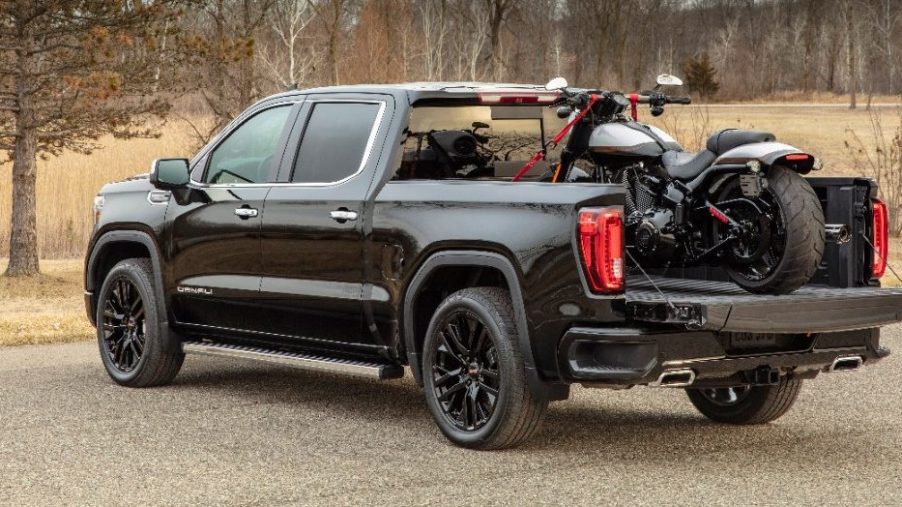
Why GMC’s Carbon Fiber Truck Bed Might Be the Best
As you consider your next new truck, you may notice additional varieties of truck bed liners available. Ford, for example, switched from the standard steel bed to the aluminum bed in 2015, in an effort to reduce weight. But this past summer, and with increasing options next year, you may have noticed the GMC CarbonPro bed as well.
While this is a limited run option for 2019, it is expected to gain wider access across additional models next year. Why does truck bed composition matter? We discussed some of the basic comparisons of aluminum and carbon fiber here before. Today, we’ll highlight why the carbon fiber truck bed might just be the best option for you.
Carbon fiber misconceptions
You may assume carbon fiber truck beds are made of the same carbon fiber you see on sports cars. You might envision it to be a lightweight plastic coating and think it’s too fragile for a working truck bed. However, it’s important to know there are different materials that go into making carbon fiber. The fiber GM is using provides almost double the durability of the race car composites you may have seen in the past.
In addition to the varying polymers, GM employs thermoplastic for the CarbonPro bed, in lieu of the traditional thermosetting. Meaning, the traditional carbon fiber materials are heated from a pliable substance to a hardened one. With thermoplastic, the polymers can be heated and molded repeatedly, avoiding the fragile state of hardened plastic. And, when we say heated, we mean well over 500 degrees, so even the hottest desert suns won’t penetrate the condition of these liners.
Increased volume capacity
Carbon fiber is a natural transition away from its steel bed counterparts. It’s more easily formed, meaning there’s greater room in the bed itself, and for ingenuity. Engineers can design additional features much easier in the carbon fiber material, including dividers for motorcycles, various pockets, and indentations.
It’s lighter than steel, too, reducing overall weight, much like the aluminum versions have for other brands. The benefit of carbon over aluminum, amazing resistance to scratching or corrosion. If you’re planning to do any work with your truck, or hauling of any kind, the carbon fiber truck bed might be the best option for you.
Carbon Fiber Is Tougher
GMC made a point to drop test the new carbon fiber beds. Cinder blocks, steel drums, and gravel left the bed unscathed. In addition, the company performed a host of extreme temperature testing. You can rest assured, knowing the carbon fiber resisted the harsh elements. Throughout the thousands of tests performed, including compression, flexing, and fatigue, only the snowmobile test left a few minor scratches. With a standard bed of carbon fiber, you’ll never have to consider a bed liner as an add-on.
What GMC’s will feature the carbon fiber truck bed?
CarbonPro editions are expected to be available in 2020 for the GMC Denali, and AT4 Sierras, as well as lower Sierra trims. It’s predicted this carbon fiber feature will remain a GMC differentiator only, not to be included on its bow-tie Silverado family members.
So, if you find yourself researching new features for those 2020 model trucks, you should strongly consider the durability of the truck beds as well. Traditional steel beds are heavier and prone to corrosion and damage. The lighter aluminum versions might save on truck weight, but you may have to invest in a bed liner to protect it. Instead, give strong consideration to the GMC’s carbon fiber truck bed. It’s a long-lasting, durable, and lightweight enhancement, that might just be the best option for you in the long run.


